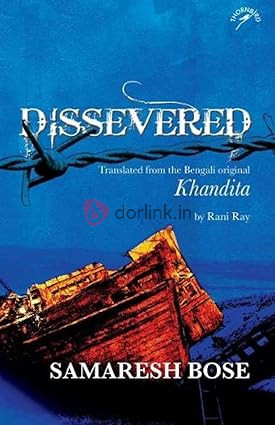Writer : Samaresh Basu
- Shipping Time : 10 Days
- Policy : Return/Cancellation?
You can return physically damaged products or wrong items delivered within 24 hours with photo/video proof.
Contact Customer Support for return initiation and receive return authorization via email. Securely package for return.
Refunds for eligible returns are processed within 7-10 business days via Bank Transfer.
Order cancellation allowed within 24 hours of placing it. Standard policy not applicable for undamaged/wrong product cases. Detailed info. - Genre : Translated Literature>Novels & Novellas
- Publication Year : 2019
- ISBN No : 978-93-89136-06-7
- Binding : Flexibound
- Pages : 192
- Weight : 255 gms
- Height x Width x Depth : 8.5x5.5x2 Inch
If so, it will be notified
About the Book
Dissevered (Khandita) – A Raw and Poignant Tale of a Nation’s Birth
Set seventy years after India’s independence, Dissevered (Khandita) captures the tumultuous experiences of three young men—Gora, Biju, and Satu—as they navigate the chaos of a newly emergent nation.
A story of ‘gully boys’ caught in the tides of history, the novella presents a street-level perspective of partition and nationhood through powerful fictional techniques. The narrative brings out issues of nationalism, identity crises, and communal discord, making it eerily relevant to today’s political discourse.
The twin histories of Partition and the birth of Bangladesh serve as a haunting backdrop. The language of the gutters ironically mirrors elite civic discourse, making for a powerful social critique. Satu’s fixation on a nomadic woman with amputated arms symbolizes both a fractured nation and a longing for unity, echoing Gandhi’s presence in Noakhali.
Samaresh Bose’s literary genius shines in his ability to portray historical complexity without overt ideology. His leftist leanings do not dominate—instead, he presents a poignant, deeply human depiction of ordinary people’s conflicting emotions on the eve of independence.
A must-read for anyone who seeks to understand the raw, unfiltered emotions of a nation in flux—where history, identity, and the struggles of ordinary people collide in a powerful, unforgettable narrative!

